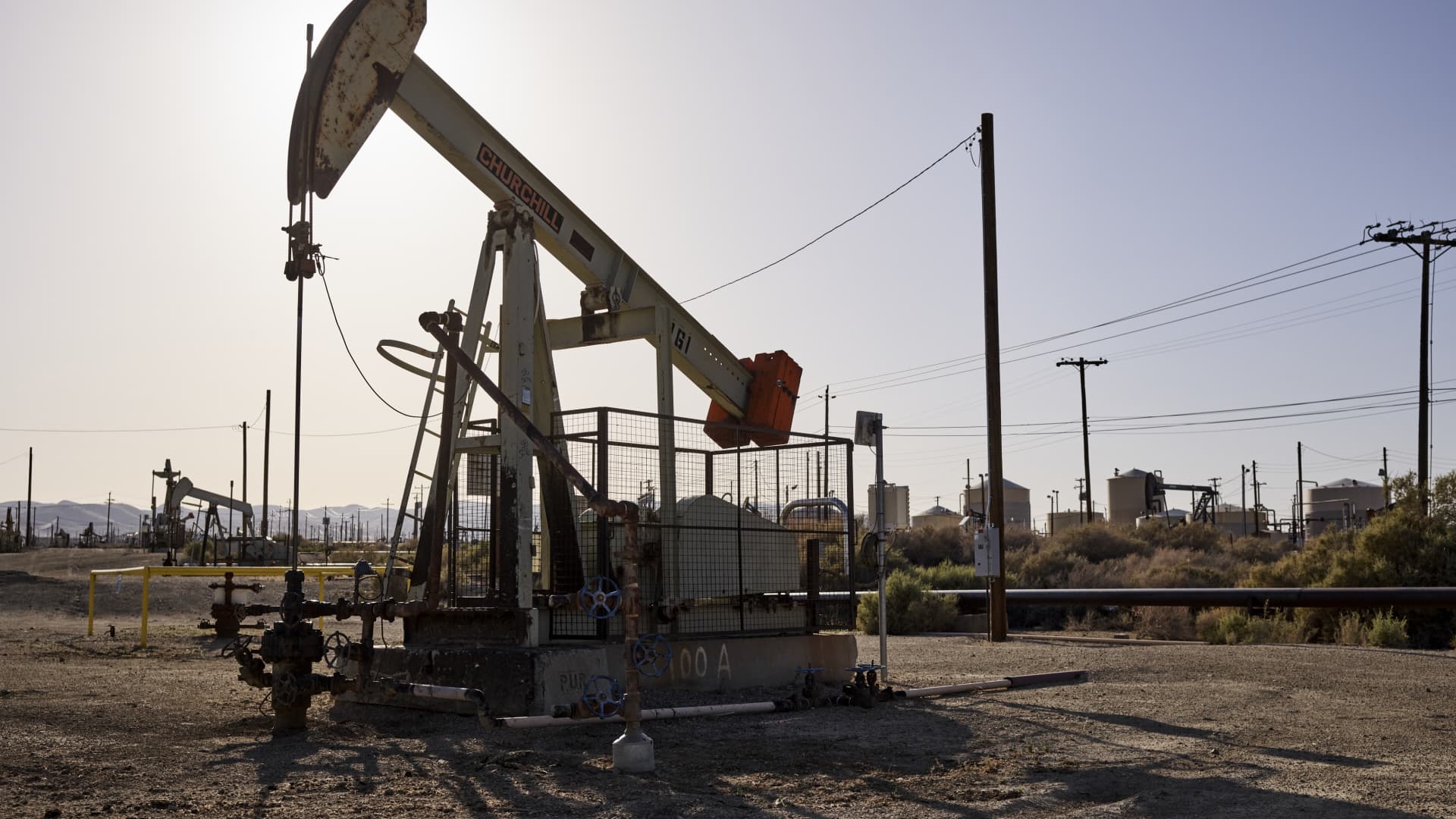
Energy expert Dan Yergin said there are two reasons why oil prices have dropped in the past month despite a market that is still tight: the Fed and Russia’s war in Ukraine.
Oil prices had been increasing since last year, spiking to highs after Russia launched an unprovoked war on Ukraine. But since the end of May, Brent has fallen from over $120 per barrel to last trade at around $109, or around 10% lower. West Texas Intermediate futures have tumbled more than 9% in the same period.
Yergin, vice chairman of S&P Global, said the U.S. Federal Reserve is choosing to go after inflation even at the risk of tilting the economy into a recession, and that’s “what’s easing its way into the oil price.”
On Wednesday, Federal Reserve Chairman Jerome Powell told lawmakers the central bank is determined to bring down inflation, even though he acknowledged a recession could happen. Achieving a “soft landing,” in which policy tightens without severe economic circumstances such as a recession, will be difficult, he said.
“The other side of it … is that Vladimir Putin has widened the war from a battlefield war in Ukraine to an economic war in Europe, where he’s trying to create hardships that will break the coalition,” Yergin told CNBC’s “Squawk Box Asia” on Friday.
Russia has limited gas supplies to Europe via the Nord Stream 1 pipeline and reduced flows to Italy. Moscow has cut gas supplies to Finland, Poland, Bulgaria, Denmark’s Orsted, Dutch firm GasTerra and energy giant Shell for its German contracts, all over a gas-for-rubles payment dispute.
Those actions have stoked fears of a difficult winter in Europe. Authorities in the region are now scrambling to fill underground storage with natural gas supplies.
Question of China’s crude demand
Yergin said the demand outlook for China, the world’s largest oil consumer, is also uncertain.
China has slowly reopened parts of the country that were recently locked down due to spikes in Covid cases. It’s unclear how quickly Chinese businesses will be able to rebound from those restrictions on economic activity.
Many economists now expect a slow recovery ahead due to far more transmissible variants, weaker growth and less government stimulus.
The extent of the recovery and reopening will have an impact on oil demand, but that uncertainty has “held the [oil] price from going higher,” Yergin said.
Will supply recover?
Earlier this month, OPEC+ agreed to boost output by 648,000 barrels a day in July, or 7% of global demand, and by the same amount in August. That’s up from the initial plan to add 432,000 bpd a month over three months until September.
“We think OPEC+ will then move to a more liberal approach and allow the few members with spare capacity to produce more,” Edward Gardner, commodities economist at Capital Economics, said in a Thursday note. He was commenting on OPEC+’s policy after it finishes unwinding its pandemic-related supply cuts in September.
That may cause Brent prices to fall back to around $100 per barrel by year end, he said.
But markets should not presume supply will recover in line with that policy.
While production quotas on OPEC+ members have been gradually eased, most have failed to raise production as quickly in tandem, Gardner said.
“Most other members don’t have the capacity to boost output in the short term. If anything, we think some members, notably Angola and Nigeria, are likely to see lower production in the coming months, as years of underinvestment continue to plague production,” he wrote.
— CNBC’s Sam Meredith and Evelyn Cheng contributed to this report.







